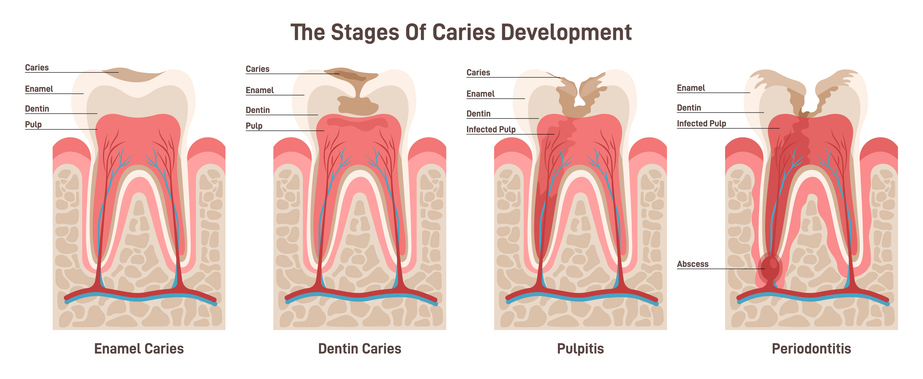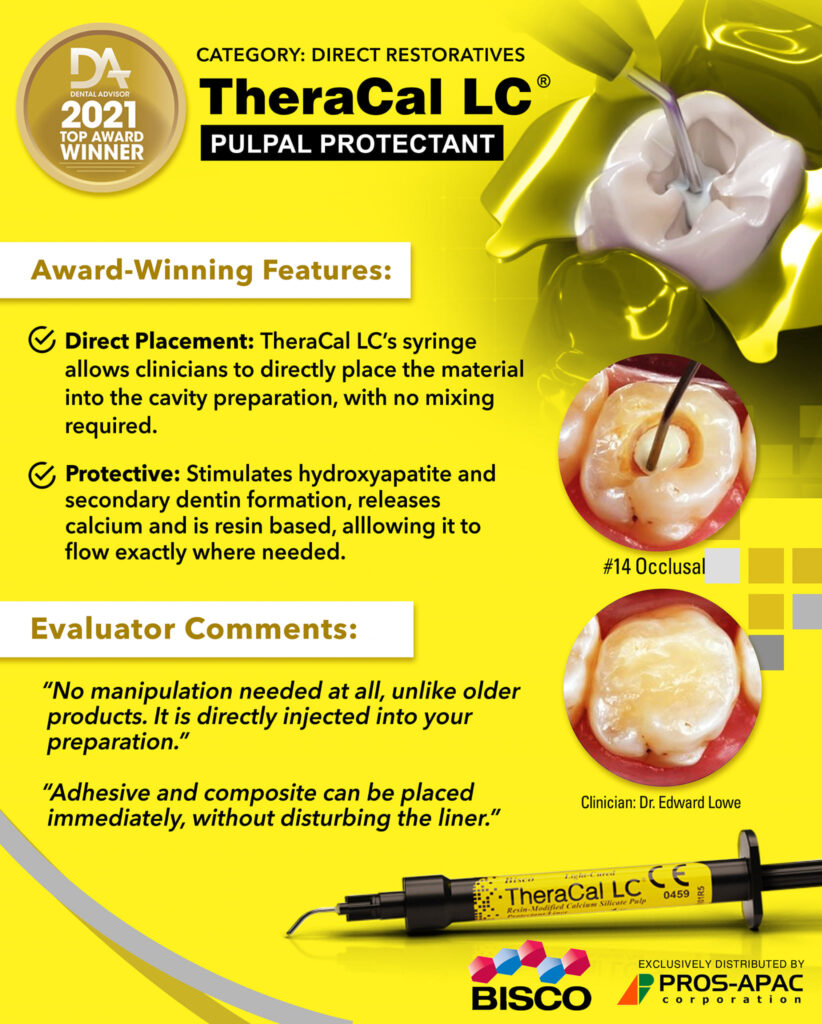Understanding and Addressing Dental Caries (Tooth Decay, Cavities)

1. The Development of Dental Caries:
Dental caries, or cavities, originate from the acid production of bacteria within dental plaque. This sticky biofilm, composed of microorganisms, forms on tooth surfaces within 4 to 12 hours after consuming sugars and starches.
Effective oral hygiene is crucial in preventing the proliferation of these acid-producing bacteria. When oral hygiene is compromised, bacterial metabolism of carbohydrates results in acids that demineralize tooth enamel. This sustained acid exposure progressively weakens the enamel, ultimately leading to structural breakdown and bacterial invasion.
2. Stages of Caries Progression:

Dental caries develops gradually, often before noticeable symptoms arise. The progression unfolds through the following stages:
Incipient Caries (Demineralization):
- Bacterial acids initiate the process by dissolving enamel minerals, resulting in localized subsurface demineralization, clinically visible as opaque white spots.
- Treatment at this stage often re-mineralization with fluoride.
Enamel Caries (Enamel Breakdown):
- Continued acid exposure weakens the enamel, leading to the formation of microcavities – the initial structural defects. Typically, this stage is asymptomatic.
- Treatment at this stage often involves a dental filling.
Dentin Caries (Dentin Involvement):
- If left untreated, the caries progresses to the dentin, a softer tissue more susceptible to bacterial degradation. The dentinal tubules contribute to increased sensitivity and accelerated decay. Patients may begin to experience heightened tooth sensitivity to hot, cold, or sweet stimuli.
- Treatment at this stage often involves a dental filling.
Pulpitis (Pulpal Involvement):
- Bacterial invasion compromises the dental pulp, causing inflammation, pain, and potential necrosis. Patients at this stage often experience severe pain, which may be unresponsive to over-the-counter pain medication and disrupt sleep. While sometimes ice can provide temporary relief, immediate dental intervention is crucial.
- Treatment at this stage often involves root canal therapy.
Periodontitis (Periapical Abscess):
- The infection can spread to the periapical tissues, leading to abscess formation, requiring advanced endodontic treatment or extraction. At this point, the inflammation has extended beyond the root and into the surrounding bone, significantly complicating tooth preservation.
- While root canal therapy is still necessary at this stage, the long-term prognosis is generally less favorable compared to earlier interventions. At Boston Finesse Dentistry & Implant Center , however, we remain dedicated to thoroughly exploring all available options to preserve your natural tooth.
Our Dentist for Cavity Care also dedicates time to evaluate your oral health and discuss treatment options with you so that you can decide on the best solutions for your long-term oral health. We do more than just treat cavities, providing preventive services like fluoride treatments, sealants, and professional cleanings to help protect your teeth from future decay.
3. Addressing Deep Cavities at Boston Finesse Dentistry:

We understand the apprehension surrounding deep cavities and the potential need for root canal treatment. At Boston Finesse Dentistry, our priority is preserving your natural teeth through minimally invasive procedures. For deep cavities that threaten the pulp, we utilize advanced biocompatible materials like Biodentine, MTA, or Theracal. These materials form a protective barrier, promoting healing and significantly reducing the need for root canals. We are committed to proactive care, empowering you with options for optimal oral health. Choose Boston Painless Cavity Filling for a hassle-free experience. We use the most advanced numbing techniques and gentle procedures available to keep you comfortable. If you have any concerns about dental cavities, please reach out to us to learn more about our preventative and restorative treatments.
Boston Finesse Dentistry & Implant Center
617-286-6515 (Call/Text)
183 Essex St, Boston, MA


